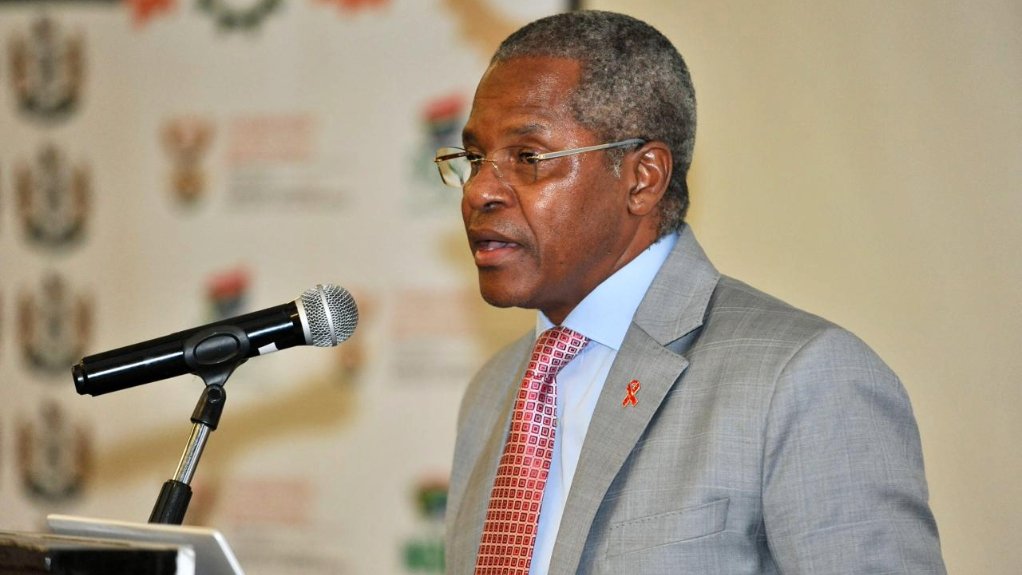Cooperative Governance and Traditional Affairs Minister Velenkosini Hlabisa said on Monday that in the 2024/25 financial year, his department disbursed R1.444-billion towards disaster management for the repair of damaged provincial infrastructure.
Hlabisa pointed out that the disaster response grants allocated to the affected municipalities for incidents which took place between December 2024 and January 2025 were made last week.
KwaZulu-Natal received R76-million, Mpumalanga received R11-million and the Free State received R10-million.
In February the Provincial Disaster Response Grant Allocation of R149-million was handed over to the Eastern Cape, KwaZulu-Natal, Mpumalanga, and Limpopo.
In March, another Municipal Disaster Recovery Grant of R669-million was given to the Free State, KwaZulu-Natal, Eastern Cape, Limpopo, and Mpumalanga.
In February, the Western Cape received R947-million for the 2025 Provincial Unavoidable and Unforeseeable allocation, after the National Disaster Management Centre (NDMC) and the province prepared a request to the National Treasury for additional funding. Other provinces are also being considered.
He explained that these funds would support a wide range of urgent interventions – from repairing damaged infrastructure and restoring basic services to supporting schools, clinics, and local economies.
The Department of Cooperative Governance and Traditional Affairs also submitted applications for the Unavoidable and Unforeseeable allocation for 2024 for Mpumalanga, Limpopo, Western Cape, KwaZulu-Natal and Eastern Cape provinces.
R947-million was allocated to the Western Cape for this period and the remaining provinces are being considered. The allocated funds are to be used within 12 months.
Hlabisa noted a multisectoral relief and rehabilitation plan would be implemented to support affected communities, and that national, provincial, and municipal authorities were required to submit progress reports on response initiatives, in line with the requirements of the NDMC.
He announced that the NDMC was actively coordinating various funding streams in response to the increasing number of disasters occurring across the country.
“We appreciate the involvement of all stakeholders and the private sector, as effective disaster response relies on a collaborative effort from multiple sectors,” he said.
Meanwhile, Hlabisa’s department is expecting to finalise the disaster assessments by end of April, to allocate funding to support affected departments and municipalities in the 2025/26 financial year.
Hlabisa announced allocations for disaster funds disbursed to provinces and pointed out that South Africa had experienced significant weather events, with various provinces suffering heavy rains, floods, thunderstorms, and strong winds since the beginning of 2025.
Forty lives were lost, and damage inflicted on infrastructure, homes, and livelihoods in KwaZulu-Natal, Eastern Cape, Limpopo, Free State, Mpumalanga, North West, and Gauteng, following the significant weather events in the country this year.
His department is currently assessing the recent classified national disaster, noting that the exact costs are not yet determined, as evaluations are ongoing owing to continuous rainfall affecting many regions.
He said the department noticed multiple ongoing challenges that impede the successful execution of infrastructure grants in various municipalities and provinces.
These issues, he said, diminish the grants' intended impact and ultimately affect the provision of essential services to communities.
He noted poor infrastructure planning and implementation, delays in the appointment of service providers and misuse of grant funds for operational costs as some of the challenges that the department is currently facing.
He explained that there is little to no reporting on fund utilisation, and that accountability mechanisms remain weak at provincial and municipal levels.
“The Department, in collaboration with relevant departments and the Municipal Infrastructure Support Agent, is intensifying efforts to assist municipalities and provinces in addressing these challenges. Our aim is to ensure that infrastructure investments lead to tangible improvements in the lives of our communities,” he said.
EMAIL THIS ARTICLE SAVE THIS ARTICLE ARTICLE ENQUIRY
To subscribe email subscriptions@creamermedia.co.za or click here
To advertise email advertising@creamermedia.co.za or click here











